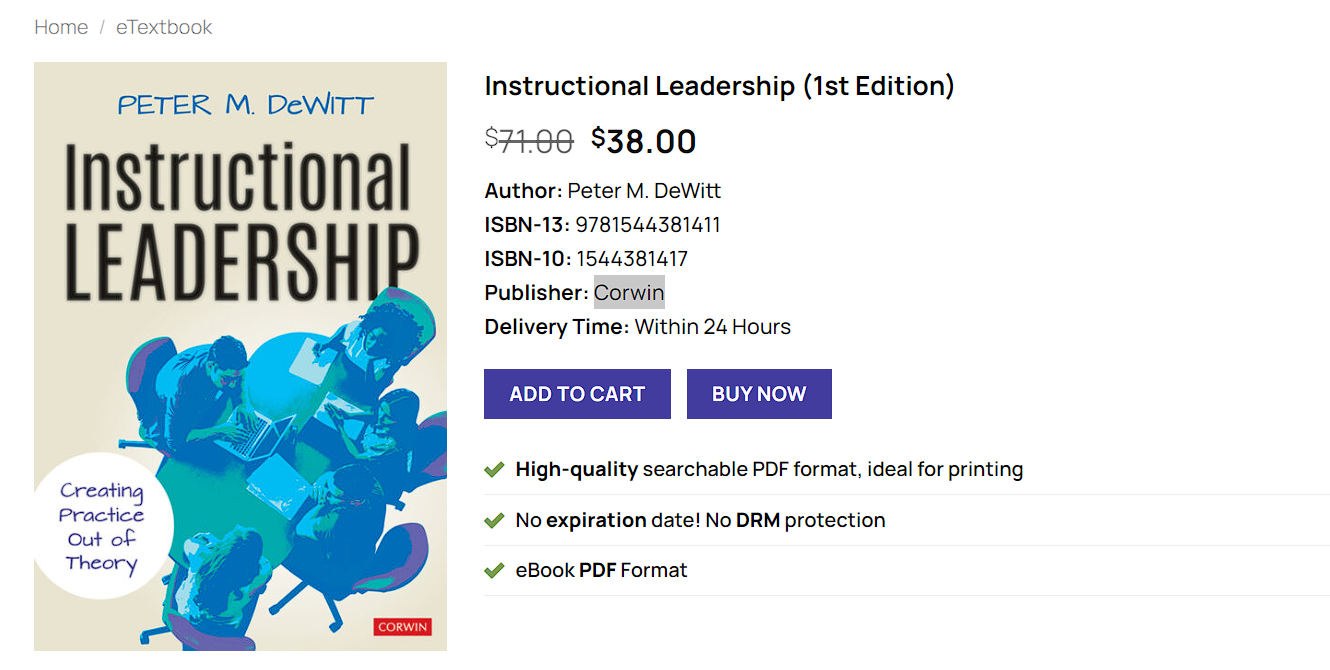Instructional Leadership 1st Edition is a crucial aspect of effective school management. In the first edition of the book, “Instructional Leadership,” the authors delve into key concepts and principles that are essential for educational leaders to understand and implement. This article will explore some of these concepts and principles, highlighting their significance in promoting student achievement and overall school improvement.
Key Concepts
One of the key concepts presented in the first edition is the importance of setting high expectations for both teachers and students. Instructional leaders play a vital role in creating a culture of excellence by establishing clear goals and standards. By setting high expectations, leaders inspire teachers and students to strive for continuous improvement and academic success.
Another important concept discussed in the book is the need for effective instructional practices. Instructional leaders must have a deep understanding of research-based teaching strategies and be able to guide teachers in implementing these practices in the classroom. By providing ongoing support and professional development, leaders can enhance instructional quality and student learning outcomes.
Principles of Instructional Leadership
The first edition of “Instructional Leadership” also presents several principles that guide effective leadership in education. One principle is the importance of collaborative decision-making. Instructional leaders should involve teachers, parents, and other stakeholders in the decision-making process to ensure that diverse perspectives are considered and that decisions are aligned with the school’s vision and goals.
Another principle highlighted in the book is the significance of data-driven decision making. Instructional leaders must utilize data to inform their instructional practices and identify areas for improvement. By analyzing student performance data and other relevant information, leaders can make informed decisions that lead to targeted interventions and improved student outcomes.
Conclusion
“Instructional Leadership 1st Edition” provides valuable insights into the key concepts and principles of effective leadership in education. By understanding and implementing these concepts and principles, instructional leaders can create a positive and supportive learning environment that promotes student achievement and overall school improvement.

